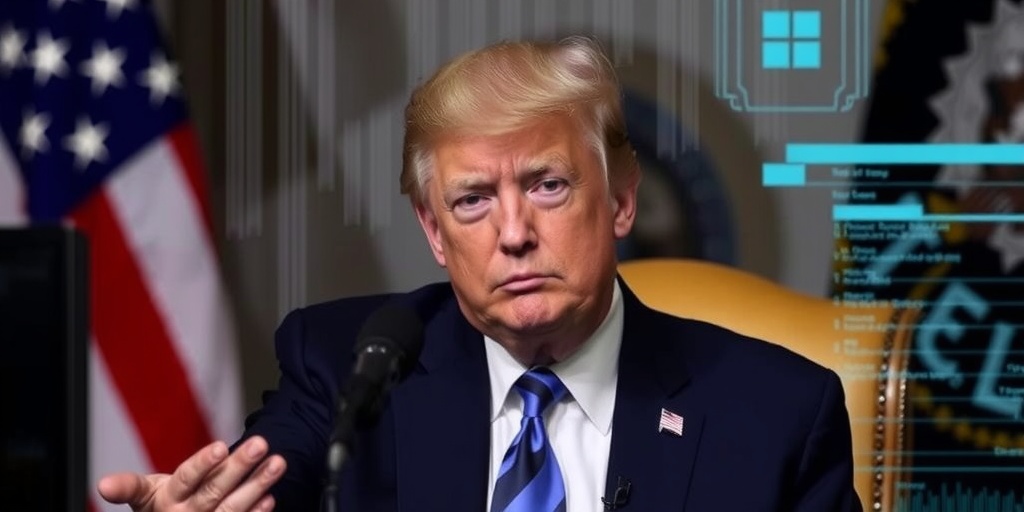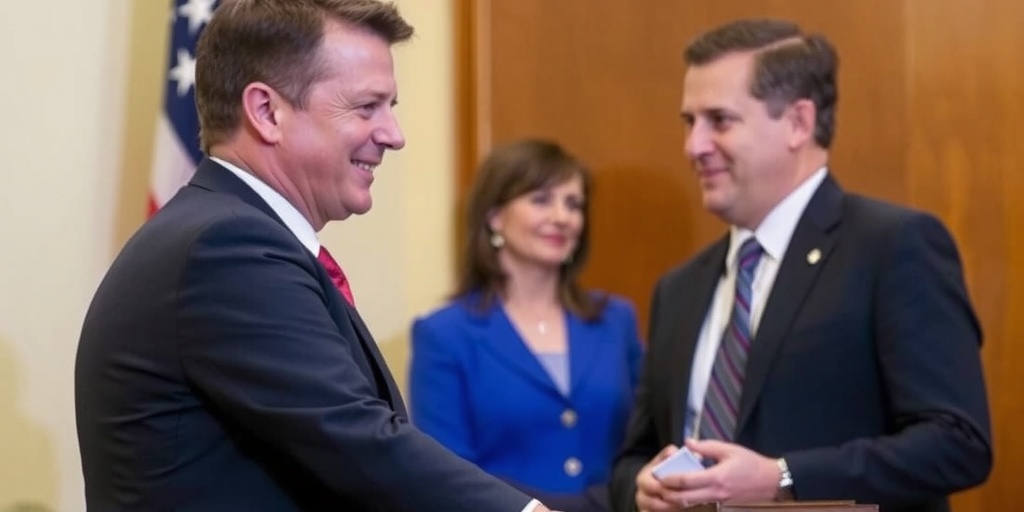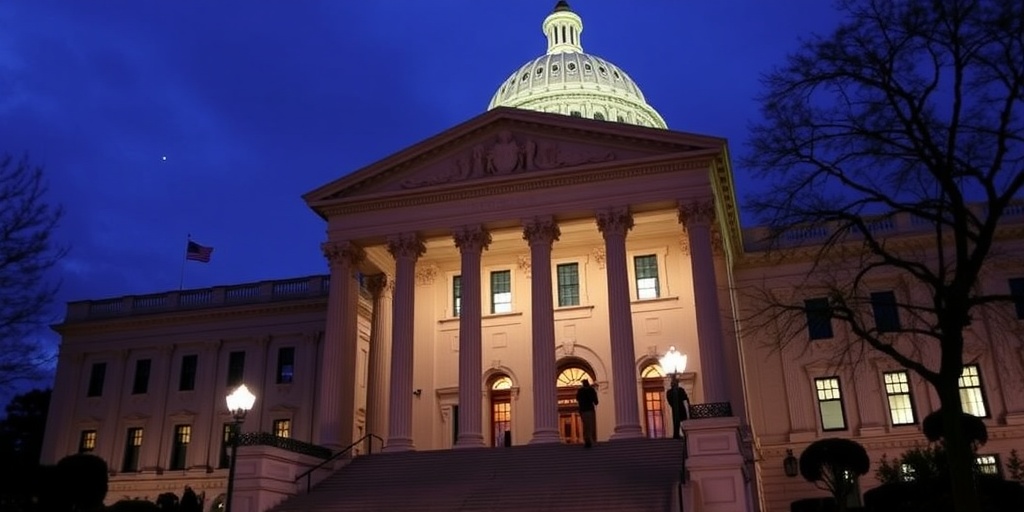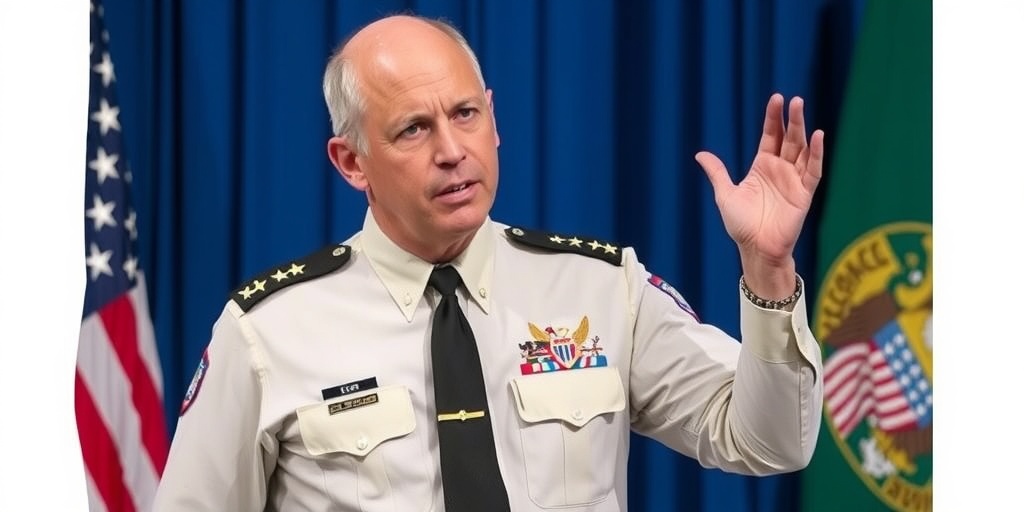Now Reading: Trump’s Security Firings Undermine U.S. Cyberdefenses
-
01
Trump’s Security Firings Undermine U.S. Cyberdefenses
Trump’s Security Firings Undermine U.S. Cyberdefenses

Title: Concerns Mount as Trump Dismantles Cyberdefenses Amid Heightened Threat Landscape
In a surprising move, President Donald Trump has dismissed General Timothy D. Haugh, the head of the National Security Agency (NSA) and U.S. Cyber Command, signaling deep shifts in the nation’s cybersecurity framework at a time when the U.S. grapples with unprecedented cyber threats. Haugh, who played a pivotal role in countering foreign cyber interference, particularly from Russia, was reportedly fired under pressure from far-right factions within the Trump administration.
General Haugh was a key figure in U.S. efforts to mitigate foreign cyber intrusions, having coordinated operations that defended the integrity of American elections against Russian interference dating back to the 2016 presidential race. However, his abrupt dismissal follows weeks of significant cuts to the nation’s cyber defenses, particularly those aimed at protecting the electoral process. Critics, including cybersecurity experts and lawmakers from both parties, have raised alarms over the dismantling of systems that took years to establish.
Concerns have intensified following the emergence of sophisticated cyberattacks, such as China’s Salt Typhoon, which infiltrated American telecommunications networks, including critical systems within the Justice Department. Senator Mark Warner, the top Democrat on the Senate Intelligence Committee, questioned how Haugh’s removal would enhance national security amid these escalating threats.
Waltz, Trump’s national security adviser, has suggested that a strategy focused primarily on offensive cyber operations may be the key to deterring threats to the nation. He argues that the United States must show its capabilities in retaliating against aggressors, despite many experts cautioning against an overly aggressive posture in cyberspace. The risks are substantial; past successes in offensive operations have not translated into lasting security improvements, as evidenced by the rising sophistication of cyberattacks from adversaries like Russia and China.
During his first term, President Trump’s administration took steps to bolster cybersecurity, establishing the Cybersecurity and Infrastructure Security Agency (CISA) and facilitating public recognition of state-sponsored cyber aggressors. However, a stark turnaround in his second term has emerged, with Trump targeting CISA and other federal agencies. The recent cuts include the elimination of programs that monitored foreign influence and disinformation, as well as slashing funds vital for cybersecurity related to electoral integrity.
Adrian Fontes, Arizona’s Democratic Secretary of State, expressed grave concerns over the recent federal funding cuts to crucial cybersecurity intelligence-sharing programs. He described the situation as if “somebody lowered the drawbridge,” leaving the nation vulnerable at a critical moment. The elimination of these programs jeopardizes the ability of local election officials to stay informed and protected from mounting cyber threats.
The proactive measures taken by CISA in the past have often proven instrumental. For instance, in the run-up to elections, the agency assisted officials in Arizona to identify a coordinated disinformation campaign and reassured them about bomb threats that turned out to be hoaxes. Unfortunately, the elimination of these supportive measures places future election security in jeopardy, with numerous states now prohibited from seeking additional funding due to newly enacted laws barring private donations to election departments.
Election officials across the political spectrum are expressing disquiet over the cuts and the looming absence of federal support. Republican Al Schmidt, Pennsylvania’s Secretary of State, has voiced concerns about the impact of federal program cutbacks on the security of upcoming elections in his state. Notably, 28 states now have laws in place restricting third-party funding for election infrastructure, further complicating the already fraught situation.
As the nation approaches another election cycle, officials fear that the reduction of federal resources will come with dire consequences. With the loss of essential partnerships at the federal level, state and local governments may struggle to maintain secure electoral processes. Jena Griswold, Colorado’s Secretary of State, highlighted the urgency of the situation, emphasizing that any delay in addressing cybersecurity measures could have profound implications for American democracy.
On the cyber front, with ransomware attacks becoming increasingly sophisticated and state-sponsored threats growing bolder, the imperative for a robust and coordinated cybersecurity strategy is clearer than ever. As the Biden administration had previously established initiatives to learn from significant breaches, the abrupt dismantling of such frameworks could hinder prepared responses to existing and emerging threats.
As we navigate these tumultuous cybersecurity challenges, the retreat from established protocols and the drastic reduction of experienced personnel raises critical questions about the future of American electoral security and overall cyber readiness. The stakes have never been higher, and as security experts warn, the impacts of such strategic cuts may take years to fully materialize.
Stay Informed With the Latest & Most Important News
Previous Post
Next Post
-
 01New technology breakthrough has everyone talking right now
01New technology breakthrough has everyone talking right now -
 02Unbelievable life hack everyone needs to try today
02Unbelievable life hack everyone needs to try today -
 03Fascinating discovery found buried deep beneath the ocean
03Fascinating discovery found buried deep beneath the ocean -
 04Man invents genius device that solves everyday problems
04Man invents genius device that solves everyday problems -
 05Shocking discovery that changes what we know forever
05Shocking discovery that changes what we know forever -
 06Internet goes wild over celebrity’s unexpected fashion choice
06Internet goes wild over celebrity’s unexpected fashion choice -
 07Rare animal sighting stuns scientists and wildlife lovers
07Rare animal sighting stuns scientists and wildlife lovers





















